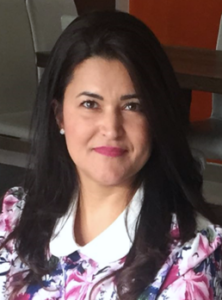This blog was written for the RSA Blog Student Summer Series that will highlight graduate student success in regional studies across the globe throughout the summer.
There is a significant body of research on Dynamic Capabilities (DC), but little is known about how Public Sector Organizations (PSOs) build these capabilities. In this article we call attention to how PSOs, build DC, while they are designing their Smart Specialization Strategy (S3). S3 is a new growth strategy that has been proposed by the European Commission (EC) as an ex-ante conditionality for the EU regions to get structural funds. This strategy seeks to stimulate economic growth using a bottom-up approach that promotes research and innovation activities in priority areas selected by the European regions themselves.

Going beyond earlier research, and drawing on previous works on the mechanisms through which organizations develop dynamic capabilities, our work proposes a comprehensive framework, that deepens our understanding on the building and functioning of DC at PSOs in the specific context of S3. Our framework presents how PSOs modify their routines and operations to be able to design the new strategy S3, through specific learning mechanisms which may result in the development of DC.
In this context, our model assumes that DCs in the context of designing the new S3 strategy are developed through three adapting phases.
Phase 1
The awareness and sensing weaknesses phase. This is the initial phase where PSOs find themselves under external pressure by EC to be engaged in the new strategic approach (S3) as an ex-ante conditionality to have access to structural funds and they realize that they have to develop appropriate capabilities to meet the S3 design requirements.
During this phase, the struggling to coop with the external factor (design of S3) stimulates awareness about what resources, processes, and capabilities PSOs need to adopt and build, in order to develop their S3. This represents the struggling thinking about how to start the process. Given the importance of external stimuli, PSOs are stimulated to implement sensing mechanisms to identify new processes or develop their old processes, which may include tapping complementary resources, selecting new tools, identifying governance mechanisms, conducting trainings for the managers and administrators or assign an external consultant.
Phase 2
The construction and capability creation phase. This phase acts on operational conditions where various external and internal sources, skills, expertise and assets from multifunctional departments and teams are combined, integrated, and start to mobilize contributing to the construction and coordination of capabilities. Learning processes take place at this phase and continue throughout the cycle to establish a knowledge base, and to allow tasks to be performed more effectively and efficiently. According to our model, the foundations of PSOs’ capabilities will be built during this phase (the second phase) during which knowledge is gained. This phase is the “seizing” phase, at the end of which PSOs are able to develop their S3. PSOs set the goal of developing S3 to get the structural funds and according to this goal they prepare an operational plan, where they adapt their process, create new practices, form governance structure, establish supportive policy communication and coordination approaches, platforms, tools, and mechanisms.
Our framework argues that there are several mechanisms that are put in operation in the construction phase that facilitate learning processes, such as the establishment of advisory councils, thematic working groups, organisation of meetings across the region, roundtable talks, surveys and interviews, supportive policy coordination approaches, online innovation platforms.
Phase 3
The capability application phase, where capability is configured in a deliberate strategic framework, and designed for the long term. During this phase, the integration of sets of skills, assets, and routines in dedicated organizational structures (alliance function) is facilitated, which contribute to the implementation of effective governance. It is during this phase that implicit knowledge, ‘know-how’ and the accumulated experiences from the previous phases, becomes increasingly embedded in human behaviour as a dynamic capabilities that assist in shaping new operational routines.
The third phase is characterized by the integration of the assets of the organization, of old routines and the new work routines that provide the basis for the development of the new capabilities. Our proposed framework argues that as a result of the changes in the processes taking place in phase 2 to meet S3 design complexity, the implicit knowledge or ‘know-how’ and the new experience accumulated from modifying the processes and routines is enabled and articulated through collective discussions, sharing sessions and experiences, during which organization members achieve an improved level of understanding of the new change. They are now able to support the organization’s goal in selecting the right priorities and channeling resources towards those investments that have the potentially highest impact on the regional economy. Next, organization members are able to document their enhanced level of understanding in written tools, manuals, or blueprints etc. to facilitate knowledge diffusion.
Finally, employees facilitate the integration of the new knowledge and capabilities into the already existing sets of skills, assets, routines, and organizational structures. These changes have the potential to be integrated and embedded within the organization’s structure and turn into repeated routines and knowledge which becomes increasingly embedded in human behavior as dynamic capabilities.

Tharwat Jaber is a PhD candidate at the Frederick University in Cyprus.

Anastasia Constantelou is affiliated with the University of the Aegean in Greece.
Are you currently involved with regional research, policy, and development? The Regional Studies Association is accepting articles for their online blog. For more information, contact the Blog Editor at rsablog@regionalstudies.org.